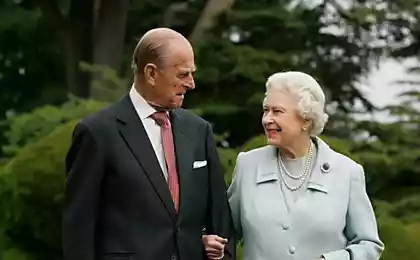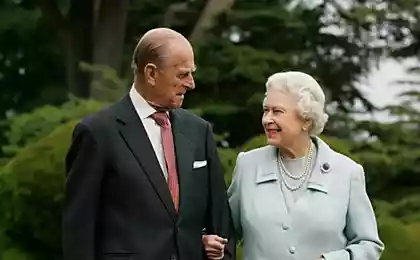603
Let them eat cake: the historian Philippe Perrot on the right to luxury
Serve the guests as Aesop, stews, languages of the birds or watering the trees like Hydrangea, sweet wine; to breed sheep, fattening them in such a way that the wool has acquired a purple hue and pleasing to the eye. Our mind, rational and democratic, can comprehend these things without judging them, not counting the wasteful, vain, scandalous senseless and useless — published Chapter from the books of Philippe Perrault "Luxury".
Being a result of contrast, luxury manifests and expresses itself only by a lack of anything. Therefore, since in every society in every age has its own shortage, and luxury too, and one does not exist without the other. Except in rare cases, physiological properties (hunger, cold), this lack can be manifested only in a certain form, which contains information about it, it is subject to the laws of social logic and is structured in a particular social space. It is against the background of interpersonal relations manifested the adequacy or inadequacy of means and ends; it is the method of production and distribution of wealth determines the sufficiency or insufficiency of the available resources relative to their desired number.
"Waste is the law, it is necessary to maintain the community balance and cohesion»
Eighty five million sixty three thousand sixty eight
That is, the shortage cannot be considered only as bioanthropological the inevitability that existed before began to be made product (which will allow to overcome the level of physical survival, creating a surplus of material goods), it is also a consequence and result of the production of the product that caused it in terms of, for example, a market economy, where the lack of something is felt more clearly than it is easier to explain and calculate. The excess can be found in "deprivation and poverty", and the lack of anything is the apparent "abundance".
While all have the same amount of wealth, neither rich nor poor, there is no authority that can force one to work for others. But hardly will overcome this stage of equality, when the physical existence of enough basic security needs, as soon as the two hands can produce more than able to eat one mouth that appeared over can become the object of desire, is a gamble and seize (especially if we are talking about the means of production).
In the long term this leads to the establishment of hierarchy and division of labor, the emergence of feelings of dissatisfaction, the awareness of such a thing as "lack" and its institutionalization. Thus, the need is not man's dependence on nature, and the statement of domination of one over the other.
Of course, comes to mind the famous explanation of the primitive mechanism of human depravity and immorality of entire peoples: "the First source of the evil is inequality; from inequality of wealth arose <...>. Wealth generated luxury and idleness, and luxury gave rise to Art, and sloth — Science".
You can also think of Thorstein Veblen, who in "the Theory of idle class" explained that the existence of a certain level of wealth and of a surplus in the economy contributes to the emergence of social stratification, which, in turn, is reflected in the fact that some work, others are wasting (time — idleness, material goods — their abundance). However, the surplus may also "sprayed" through redistribution (because the leader or group, whose concentrated wealth, their position is doomed to waste) or through relationships based on reciprocity (triple obligation: to give, receive, return), and this surplus would "self-destruct" through their sacrificial destruction.
In each of these cases, the waste is the law, it is necessary to maintain the community balance and cohesion. Anyway, for members of the same community, spared from having to work for survival — warriors, priests, political leaders — the distinctive characteristic is "luxury", which requires their position, and in order to bring themselves to acknowledge, it is necessary to Express themselves through this very "luxury" through the ostentatious extravagance of that surplus, caught in their hands.
In conditions of restrictive economy, which is characterised by marked social inequality, the privileges given to separate people, allow others to contemplate the wonders of wealth and beauty, concentrated in the same hands: the lavish celebrations, unnecessary buildings, wasteful festival, spectacle and extravagance, expect, require, seek, even those who cannot afford it and simply enjoy their contemplation.
To present evidence of its existence through the brilliance and exuberance is the duty of any government. The rich and powerful must brighten life, to decorate it, to transform, to soften her rudeness and severity. This need to impress, even if only outwardly, at least something, at least occasionally, strengthens the sacred social relations, gives rise to strong emotions, evokes a sense of belonging, unity, enthusiasm and allows you to decorate a cruel and prosaic everyday life.
Until the hierarchy of positions and possibilities will seem natural or dependent on the divine will, luxury is perceived as a normal manifestation of wealth, inherited, of course, the minority, but that is the minority it paraded and consumed in front of everyone. And this is done deliberately pointedly: "<...> people are governed not by regulations, not common orders. Must inspire respect, by referring to his feelings, to prove his power, pH underscore the distinctive features of the Monarch, the Judiciary, the bar, of the clergy.
It is necessary that their very appearance testified to the power of goodness, solidity, Holiness, of what is or what should be the representative of a certain class, Citizen, invested with a certain rank and dignity <...>". In this sense, led calepa medieval kings and high nobles resented the poor peasants did no more than funeral pomp of Pharaoh pyramids irritated modest fellahs.
Feudal knight luxury (the rich armor and gear, tournaments, and parades), or religious luxury (the grandeur of cathedrals, the splendor of the vestments, the solemn coronation and other festivities) marked a sign of respect for the calling of superiority, who admired, being a timid glare. Sacred wonders excite a single feelings and ideas in a world where theological and secular power are combined and give a religious coloring to all forms of public life.
Fifteen million six hundred twenty two thousand two hundred eight
Inextricably entwined with such phenomena as waste, gift, hospitality, generosity (mainly medieval virtue), luxury, however, produce, capture or receive only in order to symbolically "destroy", to sacrifice or to "freeze" in this act of waste. And money is a universal equivalent that is designed for sharing, despised, and trade, this neg-otium ig-nobilis (noble activity), which accumulates instead of produce. To spend, to give without counting, without looking back — that's two sides of the ideal knight, the ideal of honor and glory.
Because the waste of their heritage is the highest expression of vitality, it is not so much the ability to Express the enjoyment of life, as the implementation of a debt. You can deny, deny material benefits, however generous the gesture, as if forcing one who is a gift to gratitude and appreciation, and the giver becomes revered and respected. Patronage and solidarity against loyalty and devotion: the levying of dues on the part of the feudal Seigneur of assumed superiority, as well as the recognition of a vassal, a guest or a servant to his dependent status.
Generosity, duty position, not a State of faith, not law, in the same way that alms, by which squandered luxury finds its justification and even idealized, strengthens the magic power, its prestige, subordinates addict and forces to respect the already established hierarchy more than brute domination.
In fact, in medieval society, all sacrificed for entertainment. As if to distract from disasters, threats, hazards, between the two wars, two bad years, two epidemics of plague, the castle, Church, bridge, square, the whole city becomes the scenery for games and festivities, noisy, bright, the epitome of living aesthetics and the ever-present theatrics. Strolling musicians, the leaders of bears, various processions everywhere, is a place where public life unfolds some of the stage action, which, breaking over the gray everyday life, become for the community reason to celebrate its existence and right to exist. Street, open to all festival, the community also gathers all the people most often around some sports or military celebrations is a passion of the nobility, whose physical strength and agility must remind everyone of his military mission.
The strengthening of Royal power and absolutism, the rise of princes and courtiers, the adoption of market capitalism and the establishment of the State will be gradually to change this wasteful or unbridled luxury, to smooth its wildness, to soften roughness, will add to her magnificence or will give quite a different splendor. The luxury of the Renaissance with its daring, sensual, symbolizing fierceness and obsession, then a luxury of the Baroque and of classicism with their laws against excessive costs when on the foreground there will be the figure of the king, whose role will be mainly political, and the second plan will now go to what it was in the Middle ages almost exclusively with religion and military.
Of course, the famous parade on the Field of the cloth of gold, when in 1520 the young kings of France and England vied in magnificence and power, yet has the features of "potlatch" in a primitive society or a feudal tournament; but he, taking a sample of the sophistication and elegance of the courtyard of Blois, already Herald the unprecedented triumph of mercantilism, and most importantly, finds its own language, its own set of symbols, for which the "upper class", combining the concept of "to be" and "to have", learn to recognize their own kind, and to distance itself from the vulgar and vulgar.
Soon replaced Notre Dame will come to Versailles. Political power will seek to merge with personal power. With the attractiveness of high status, a symbolic figure of the monarch will be a creature of flesh and blood. Henceforward, the king becomes the spokesman of the force, guarantee the protection and well-being, but he will lavish mercy as a proof of this protection and of well-being. King, "noble" and "majestic" will be henceforth the source of all abundance. That's why his physical body will surround themselves with splendor, which will indicate, in some sense, the richness of "public body" — even if the brilliance of this symbolic wealth to contrast with the poverty of the common people, forced daily to struggle for existence, even if it's turned into a ritual wealth will only encourage a separate, distinct culture.
"Luxury, designed to create a cult of Royal authority and restore the unity of itself deprive of sacred character as soon as it ceases to be on public display with the sole purpose to show that she was sent by Providence»
The fact that this theatrical, fueled by allusions and hints, incomprehensible to the uninitiated, the Yard is playing an increasingly important role: it is sending the monarch his radiant way, emits radiance and splendor, attracts the people, however, moving away from him. The yard is ever-present under Louis XIV as a confirmation of his supremacy after contesting the monarchical prerogatives of the era of the Fronde, but as a confirmation of themselves, their prestige and their privileges with etiquette and unbridled growth of expenditures. For the court nobility, devoid of roots and weakened by being near the throne, should at least prove their superiority things that will glorify.
In addition, freed from the many administrative and political responsibilities, it now can maintain only a waste, only the ability to spend, flaunting their lifestyle, their manners, their costumes and jewelry, their feasts and holidays. From now on, to be is to seem, and to demonstrate what you are. The regulation regulates the costs which, in turn, indicate the position, depending on the situation.
Show and to be visible. The game of "brag". The Ghost of a universe of lights, where vision trumps all other senses, and acquired a new experience: something that seemed attractive, leaves a feeling of disappointment, the desire is unsatisfied, a desire to dazzle and delight all comprehend the futility of everything and the fallacy of all that is visible. Despite the fact that the already humiliated the ideal of chivalry will be finally crushed, the strengthening of the absolutism and strengthening of the State will only exacerbate the disappointment and be the cause of moral pessimism.
In contrast to the aristocratic "I" there is a noteworthy direction: thinkers, writers, in varying degrees, soaked Yasenetsky theology, contributing, as very aptly Paul Bénichou, "debunking the hero" and yet cultivates a suspicious attitude to demonstrative extravagance. So Pascal will expose the manifestation of ostentation and grandeur — it's just tricks to hide from oneself and to fool others; but La Rochefoucauld clearly explain the motives of generosity and pride is always a manifestation of vanity or a mask that it wears.
Forty nine million three hundred forty nine thousand six hundred four
However, the luxury, designed to create a cult of Royal authority and restore the unity of itself deprive of sacred character as soon as it ceases to be on public display with the sole purpose to show that she sent down to Providence.
The promotion of industry and trade, the support of patronage increase, of course, the power of the sovereign and increase the prestige of the nobility. But at the same time, these phenomena contain aspects that cannot be controlled by political will, bear the imprint of the utility or, conversely, can serve more than selfish pleasures. In other words, over the centuries in the art of the flashy effects and the consumption of excess new shades: entertainment and vanity become more important than the evidence of the glory of the monarch, unobtrusive testifying to his greatness. But this worldly, secular luxury (the fruit of more material civilization, which stimulate "kolbertizm"(one of the names mercantilist policy pursued in France in the seventeenth century Jean-Baptiste Colbert) and a smooth rise of the market economy) indicates an even more profound change.
Among the nobility, that this luxury is, and trading and craft bourgeoisie that this luxury provides, with the consent of the king concluded a tacit agreement: merchants and craftsmen living in their own world of hard work and working sweat, desperately needs to produce elegant costumes, exquisite food, magnificent homes, elegant furnishings and carpets; the court, being in his own world of aristocratic idleness, have, consuming all this magnificence, to support its production, as if to put on the technical quality of the product his seal of highest approval.
All this luxury, which is concentrated in the hands of one class, becomes the cause of the increasingly fierce competition in the prestige and leads to another unrestrained spending, forcing deeper into debt. The more that competition is growing, as stressed by Saint-Lambert: "<...> since the success of Commerce, industry and production of luxury items was created, so to speak, a new type of wealth that became the cause of disunity among the common people, people who are accustomed to read of the luxury of their Masters, began to read it, and equal; the Great of this world considered that disappeared hierarchy, elevating them above the people, in order to preserve the difference, I had to increase spending". That's why, while merchants and craftsmen rich, noble luxury looks not as real wealth, but as an attempt to hide his devastation, "the court poverty", which he wrote Madame de Sevigne. "They had not a single SOU, but all they travel, participate in campaigns, follow fashion trends, you can see them at all points, at all the resorts, all lotteries, even though they at the same time and was ravaged by the <...>.
The famous scene when the Louis XIV in Marly render honors to the banker Samuel Bernard, who insists the loan, suggests that the situation has changed dramatically. Now, not so much the origin, how much money to give right on luxury. Luxury is increasingly manifest in the wealth of movable property and not just real in those days, when the first appearance of wealth begins to displace the second, when the right to land is not accompanied, as before, power over people; when the prestige of noble birth is beginning to yield to the prestige of the commercial or financial impact.
So the second bar also will seek to acquire, through marriage, loan, sell Lenno possessions, positions, titles — movable property, securities, though to them and treated with contempt, while the rich man "no position" will seek to assert its elevation through the elevation to the nobility.
Priority of birth, descent, and noble blood, the priority of "selfless" service to the public interest gradually waned, but much more important is the increment of personal wealth, the pursuit of luxury, which puts herself, in her more lust and vanity. This claim and the Church and the moralists like La bruyère or a fénelon. "The passion to get the benefits for vain luxuries corrupting the pure souls, says Fenelon, is now more important to be rich, poverty is akin to indignity. Be learned, skilled, virtuous, educate people, win battles, save the homeland, sacrificing their own interests: you will be despised, if your talents will not be cut luxury and splendor".
Wealth and its manifestations, occupying an increasingly important place and becoming a target of increasingly larger segments of the population, separated from concepts such as "social position," "title," acquire an independent status and violate the sacred nature of social relations, the legitimacy of the government itself. The poor man, who formerly took for granted their position in relation to the Lord, the divine law, will now feel the success of the Nouveau riche as an injustice, undue luck, feel disgusted or jealous of his calling, bold luxury, deprived of its charismatic component of their divine justification. And the representative of an ancient noble family, which will be to imitate every kind of lucky commoners: merchants, tax farmers, traffickers, members of Parliament or the financial elite will be able to accept the challenge of luxury, only at the risk of even more bogged down in debt, and he, whose essence of life is reduced to consumption pure consumption for the sake of honor and pleasure that should not humiliate themselves in productive labor, to descend to calculations and savings. As La Bruyere says: "the decline of the people of the judicial and military ranks is that their costs they sorazmerit not with income, and with his position".
Of course, you can try using word order to restore the order of things: the splendor of the court of Louis XIV is not a luxury Fouquet. On this we warned Nicola DELAMAR: "the Splendor of luxury is different from the fact that splendor is not at odds with common sense, decency: if the princes and nobles stand in all its splendor, if they allow themselves to be wasteful, it always meets their high status and income; this magnificence is even needed to maintain the status of noble birth, to command the respect of the commoners, to protect the trade and art in abundance there pouring huge amounts for their own state would be useless; therefore, pomp is a virtue. In luxury, on the contrary, there is nothing but ambition and vanity <...>".
Laws against luxury and excessive expenditures, as well as rules of etiquette are intended to restrain these movements similar and competing, expansive and relaxing, the symptoms of increasing social mobility. Because protectionist and prohibitive laws are intended not only to prevent the export of funds, but also to preserve the privileges of the "luxury" to protect aristocratic distinction and appearance, to each to indicate its place by adopting external features of each class.
"Perversity gave the price of the most empty things; just not using them, seemed to be enjoying, because they thought those others; not having passion, each trying to speak the language of passion, and the passion about this was very weird»
But these obstacles it is highly unreliable and, as evidenced by the image of the Bourgeois gentleman, they are easy to overcome. And if Royal absolutism was able for some time to curb this phenomenon, it will again manifest themselves to the end of the reign of Louis XIV, when "civilization morality" leaves a glossy, official decoration of Versailles and blossom in private residences, when all of these attributes will cease to be a mere accessory of the nobility, and it will be left to himself, his doubts, his cynicism, his disappointments, in terms of public order, tragically devoid of divine validity.
As he wrote to the Marquise de Merten from Choderlos de Laclos: "the Luxury of absorbing all her blame, but it is necessary for her to reach, and in the end deprived of the necessary luxuries". That is the man who, being in the world which has left the faith feels the insignificance of its existence that remains for him but to flee himself, to seek oblivion in games and fireworks universal entertainment? This will be the victory of personal morality private pleasure over public morality of the Royal service; the rebirth of prestige "to be" prestige "to have"; the destruction of "greatness" in favor of "owning" the triumph of money for money, which has become now the only measure through which you can like and enjoy.
This is a luxury, have become completely secular, materialistic, calculated, which serves only self-interest, pleasure and vanity; in a primal fashion when magic frivolous and the cult of the ephemeral replacing the age-old signs of the monarchical order, when the City plug for the belt Yard, when the superiority of the aristocratic characters, although it continues to exist, but it becomes illusory — because now only wealth can make them visible, and the power of money has replaced legal privileges.
Mansions, gardens, tuples, books, paintings, statues, knickknacks; holidays, feasts, mistresses, crew, dancers, artists, and even dresses, jewelry, watches, snuff — everything that surrounds a person surrounds himself or his image, competes in sophistication and splendour. "Today, where luxury is everywhere, and money talks, all mixed up in the Paris <...>", — said the lawyer Barbier.
Harsh competition, especially as it covers all the new social groups; the greedy assignment, especially as it concerns things more ephemeral, whose rapid spread detects and proves the inability to permanently hold their value, impotent attempts to escape from anxiety, frustration and boredom. "<...> because it is only through large expenditures can be made known, then all States are in disarray, and all estates, trying more and more from each other to vary the SIM effort itself was mixed. Emergency concern everyone showed extensive desires, and vanity, which was satisfied, it seemed having no desires.
Perversity gave the price of the most empty things; just not using them, seemed to be enjoying, because they thought those others; not having passion, each trying to speak the language of passion, and the passion about this was very weird. Every passion was only from obedience to the laws of a wayward fashion, which, being the only rule for the taste and feelings prescribed to each what he should desire, speak, do and think; thinking was the last action."published
Translated from French: A. Smirnova.
P. S. And remember, just changing your mind — together we change the world! ©
Join us in Facebook , Vkontakte, Odnoklassniki
Source: theoryandpractice.ru/posts/9289-pravo-na-roskosh
Being a result of contrast, luxury manifests and expresses itself only by a lack of anything. Therefore, since in every society in every age has its own shortage, and luxury too, and one does not exist without the other. Except in rare cases, physiological properties (hunger, cold), this lack can be manifested only in a certain form, which contains information about it, it is subject to the laws of social logic and is structured in a particular social space. It is against the background of interpersonal relations manifested the adequacy or inadequacy of means and ends; it is the method of production and distribution of wealth determines the sufficiency or insufficiency of the available resources relative to their desired number.
"Waste is the law, it is necessary to maintain the community balance and cohesion»
Eighty five million sixty three thousand sixty eight
That is, the shortage cannot be considered only as bioanthropological the inevitability that existed before began to be made product (which will allow to overcome the level of physical survival, creating a surplus of material goods), it is also a consequence and result of the production of the product that caused it in terms of, for example, a market economy, where the lack of something is felt more clearly than it is easier to explain and calculate. The excess can be found in "deprivation and poverty", and the lack of anything is the apparent "abundance".
While all have the same amount of wealth, neither rich nor poor, there is no authority that can force one to work for others. But hardly will overcome this stage of equality, when the physical existence of enough basic security needs, as soon as the two hands can produce more than able to eat one mouth that appeared over can become the object of desire, is a gamble and seize (especially if we are talking about the means of production).
In the long term this leads to the establishment of hierarchy and division of labor, the emergence of feelings of dissatisfaction, the awareness of such a thing as "lack" and its institutionalization. Thus, the need is not man's dependence on nature, and the statement of domination of one over the other.
Of course, comes to mind the famous explanation of the primitive mechanism of human depravity and immorality of entire peoples: "the First source of the evil is inequality; from inequality of wealth arose <...>. Wealth generated luxury and idleness, and luxury gave rise to Art, and sloth — Science".
You can also think of Thorstein Veblen, who in "the Theory of idle class" explained that the existence of a certain level of wealth and of a surplus in the economy contributes to the emergence of social stratification, which, in turn, is reflected in the fact that some work, others are wasting (time — idleness, material goods — their abundance). However, the surplus may also "sprayed" through redistribution (because the leader or group, whose concentrated wealth, their position is doomed to waste) or through relationships based on reciprocity (triple obligation: to give, receive, return), and this surplus would "self-destruct" through their sacrificial destruction.
In each of these cases, the waste is the law, it is necessary to maintain the community balance and cohesion. Anyway, for members of the same community, spared from having to work for survival — warriors, priests, political leaders — the distinctive characteristic is "luxury", which requires their position, and in order to bring themselves to acknowledge, it is necessary to Express themselves through this very "luxury" through the ostentatious extravagance of that surplus, caught in their hands.
In conditions of restrictive economy, which is characterised by marked social inequality, the privileges given to separate people, allow others to contemplate the wonders of wealth and beauty, concentrated in the same hands: the lavish celebrations, unnecessary buildings, wasteful festival, spectacle and extravagance, expect, require, seek, even those who cannot afford it and simply enjoy their contemplation.
To present evidence of its existence through the brilliance and exuberance is the duty of any government. The rich and powerful must brighten life, to decorate it, to transform, to soften her rudeness and severity. This need to impress, even if only outwardly, at least something, at least occasionally, strengthens the sacred social relations, gives rise to strong emotions, evokes a sense of belonging, unity, enthusiasm and allows you to decorate a cruel and prosaic everyday life.
Until the hierarchy of positions and possibilities will seem natural or dependent on the divine will, luxury is perceived as a normal manifestation of wealth, inherited, of course, the minority, but that is the minority it paraded and consumed in front of everyone. And this is done deliberately pointedly: "<...> people are governed not by regulations, not common orders. Must inspire respect, by referring to his feelings, to prove his power, pH underscore the distinctive features of the Monarch, the Judiciary, the bar, of the clergy.
It is necessary that their very appearance testified to the power of goodness, solidity, Holiness, of what is or what should be the representative of a certain class, Citizen, invested with a certain rank and dignity <...>". In this sense, led calepa medieval kings and high nobles resented the poor peasants did no more than funeral pomp of Pharaoh pyramids irritated modest fellahs.
Feudal knight luxury (the rich armor and gear, tournaments, and parades), or religious luxury (the grandeur of cathedrals, the splendor of the vestments, the solemn coronation and other festivities) marked a sign of respect for the calling of superiority, who admired, being a timid glare. Sacred wonders excite a single feelings and ideas in a world where theological and secular power are combined and give a religious coloring to all forms of public life.
Fifteen million six hundred twenty two thousand two hundred eight
Inextricably entwined with such phenomena as waste, gift, hospitality, generosity (mainly medieval virtue), luxury, however, produce, capture or receive only in order to symbolically "destroy", to sacrifice or to "freeze" in this act of waste. And money is a universal equivalent that is designed for sharing, despised, and trade, this neg-otium ig-nobilis (noble activity), which accumulates instead of produce. To spend, to give without counting, without looking back — that's two sides of the ideal knight, the ideal of honor and glory.
Because the waste of their heritage is the highest expression of vitality, it is not so much the ability to Express the enjoyment of life, as the implementation of a debt. You can deny, deny material benefits, however generous the gesture, as if forcing one who is a gift to gratitude and appreciation, and the giver becomes revered and respected. Patronage and solidarity against loyalty and devotion: the levying of dues on the part of the feudal Seigneur of assumed superiority, as well as the recognition of a vassal, a guest or a servant to his dependent status.
Generosity, duty position, not a State of faith, not law, in the same way that alms, by which squandered luxury finds its justification and even idealized, strengthens the magic power, its prestige, subordinates addict and forces to respect the already established hierarchy more than brute domination.
In fact, in medieval society, all sacrificed for entertainment. As if to distract from disasters, threats, hazards, between the two wars, two bad years, two epidemics of plague, the castle, Church, bridge, square, the whole city becomes the scenery for games and festivities, noisy, bright, the epitome of living aesthetics and the ever-present theatrics. Strolling musicians, the leaders of bears, various processions everywhere, is a place where public life unfolds some of the stage action, which, breaking over the gray everyday life, become for the community reason to celebrate its existence and right to exist. Street, open to all festival, the community also gathers all the people most often around some sports or military celebrations is a passion of the nobility, whose physical strength and agility must remind everyone of his military mission.
The strengthening of Royal power and absolutism, the rise of princes and courtiers, the adoption of market capitalism and the establishment of the State will be gradually to change this wasteful or unbridled luxury, to smooth its wildness, to soften roughness, will add to her magnificence or will give quite a different splendor. The luxury of the Renaissance with its daring, sensual, symbolizing fierceness and obsession, then a luxury of the Baroque and of classicism with their laws against excessive costs when on the foreground there will be the figure of the king, whose role will be mainly political, and the second plan will now go to what it was in the Middle ages almost exclusively with religion and military.
Of course, the famous parade on the Field of the cloth of gold, when in 1520 the young kings of France and England vied in magnificence and power, yet has the features of "potlatch" in a primitive society or a feudal tournament; but he, taking a sample of the sophistication and elegance of the courtyard of Blois, already Herald the unprecedented triumph of mercantilism, and most importantly, finds its own language, its own set of symbols, for which the "upper class", combining the concept of "to be" and "to have", learn to recognize their own kind, and to distance itself from the vulgar and vulgar.
Soon replaced Notre Dame will come to Versailles. Political power will seek to merge with personal power. With the attractiveness of high status, a symbolic figure of the monarch will be a creature of flesh and blood. Henceforward, the king becomes the spokesman of the force, guarantee the protection and well-being, but he will lavish mercy as a proof of this protection and of well-being. King, "noble" and "majestic" will be henceforth the source of all abundance. That's why his physical body will surround themselves with splendor, which will indicate, in some sense, the richness of "public body" — even if the brilliance of this symbolic wealth to contrast with the poverty of the common people, forced daily to struggle for existence, even if it's turned into a ritual wealth will only encourage a separate, distinct culture.
"Luxury, designed to create a cult of Royal authority and restore the unity of itself deprive of sacred character as soon as it ceases to be on public display with the sole purpose to show that she was sent by Providence»
The fact that this theatrical, fueled by allusions and hints, incomprehensible to the uninitiated, the Yard is playing an increasingly important role: it is sending the monarch his radiant way, emits radiance and splendor, attracts the people, however, moving away from him. The yard is ever-present under Louis XIV as a confirmation of his supremacy after contesting the monarchical prerogatives of the era of the Fronde, but as a confirmation of themselves, their prestige and their privileges with etiquette and unbridled growth of expenditures. For the court nobility, devoid of roots and weakened by being near the throne, should at least prove their superiority things that will glorify.
In addition, freed from the many administrative and political responsibilities, it now can maintain only a waste, only the ability to spend, flaunting their lifestyle, their manners, their costumes and jewelry, their feasts and holidays. From now on, to be is to seem, and to demonstrate what you are. The regulation regulates the costs which, in turn, indicate the position, depending on the situation.
Show and to be visible. The game of "brag". The Ghost of a universe of lights, where vision trumps all other senses, and acquired a new experience: something that seemed attractive, leaves a feeling of disappointment, the desire is unsatisfied, a desire to dazzle and delight all comprehend the futility of everything and the fallacy of all that is visible. Despite the fact that the already humiliated the ideal of chivalry will be finally crushed, the strengthening of the absolutism and strengthening of the State will only exacerbate the disappointment and be the cause of moral pessimism.
In contrast to the aristocratic "I" there is a noteworthy direction: thinkers, writers, in varying degrees, soaked Yasenetsky theology, contributing, as very aptly Paul Bénichou, "debunking the hero" and yet cultivates a suspicious attitude to demonstrative extravagance. So Pascal will expose the manifestation of ostentation and grandeur — it's just tricks to hide from oneself and to fool others; but La Rochefoucauld clearly explain the motives of generosity and pride is always a manifestation of vanity or a mask that it wears.
Forty nine million three hundred forty nine thousand six hundred four
However, the luxury, designed to create a cult of Royal authority and restore the unity of itself deprive of sacred character as soon as it ceases to be on public display with the sole purpose to show that she sent down to Providence.
The promotion of industry and trade, the support of patronage increase, of course, the power of the sovereign and increase the prestige of the nobility. But at the same time, these phenomena contain aspects that cannot be controlled by political will, bear the imprint of the utility or, conversely, can serve more than selfish pleasures. In other words, over the centuries in the art of the flashy effects and the consumption of excess new shades: entertainment and vanity become more important than the evidence of the glory of the monarch, unobtrusive testifying to his greatness. But this worldly, secular luxury (the fruit of more material civilization, which stimulate "kolbertizm"(one of the names mercantilist policy pursued in France in the seventeenth century Jean-Baptiste Colbert) and a smooth rise of the market economy) indicates an even more profound change.
Among the nobility, that this luxury is, and trading and craft bourgeoisie that this luxury provides, with the consent of the king concluded a tacit agreement: merchants and craftsmen living in their own world of hard work and working sweat, desperately needs to produce elegant costumes, exquisite food, magnificent homes, elegant furnishings and carpets; the court, being in his own world of aristocratic idleness, have, consuming all this magnificence, to support its production, as if to put on the technical quality of the product his seal of highest approval.
All this luxury, which is concentrated in the hands of one class, becomes the cause of the increasingly fierce competition in the prestige and leads to another unrestrained spending, forcing deeper into debt. The more that competition is growing, as stressed by Saint-Lambert: "<...> since the success of Commerce, industry and production of luxury items was created, so to speak, a new type of wealth that became the cause of disunity among the common people, people who are accustomed to read of the luxury of their Masters, began to read it, and equal; the Great of this world considered that disappeared hierarchy, elevating them above the people, in order to preserve the difference, I had to increase spending". That's why, while merchants and craftsmen rich, noble luxury looks not as real wealth, but as an attempt to hide his devastation, "the court poverty", which he wrote Madame de Sevigne. "They had not a single SOU, but all they travel, participate in campaigns, follow fashion trends, you can see them at all points, at all the resorts, all lotteries, even though they at the same time and was ravaged by the <...>.
The famous scene when the Louis XIV in Marly render honors to the banker Samuel Bernard, who insists the loan, suggests that the situation has changed dramatically. Now, not so much the origin, how much money to give right on luxury. Luxury is increasingly manifest in the wealth of movable property and not just real in those days, when the first appearance of wealth begins to displace the second, when the right to land is not accompanied, as before, power over people; when the prestige of noble birth is beginning to yield to the prestige of the commercial or financial impact.
So the second bar also will seek to acquire, through marriage, loan, sell Lenno possessions, positions, titles — movable property, securities, though to them and treated with contempt, while the rich man "no position" will seek to assert its elevation through the elevation to the nobility.
Priority of birth, descent, and noble blood, the priority of "selfless" service to the public interest gradually waned, but much more important is the increment of personal wealth, the pursuit of luxury, which puts herself, in her more lust and vanity. This claim and the Church and the moralists like La bruyère or a fénelon. "The passion to get the benefits for vain luxuries corrupting the pure souls, says Fenelon, is now more important to be rich, poverty is akin to indignity. Be learned, skilled, virtuous, educate people, win battles, save the homeland, sacrificing their own interests: you will be despised, if your talents will not be cut luxury and splendor".
Wealth and its manifestations, occupying an increasingly important place and becoming a target of increasingly larger segments of the population, separated from concepts such as "social position," "title," acquire an independent status and violate the sacred nature of social relations, the legitimacy of the government itself. The poor man, who formerly took for granted their position in relation to the Lord, the divine law, will now feel the success of the Nouveau riche as an injustice, undue luck, feel disgusted or jealous of his calling, bold luxury, deprived of its charismatic component of their divine justification. And the representative of an ancient noble family, which will be to imitate every kind of lucky commoners: merchants, tax farmers, traffickers, members of Parliament or the financial elite will be able to accept the challenge of luxury, only at the risk of even more bogged down in debt, and he, whose essence of life is reduced to consumption pure consumption for the sake of honor and pleasure that should not humiliate themselves in productive labor, to descend to calculations and savings. As La Bruyere says: "the decline of the people of the judicial and military ranks is that their costs they sorazmerit not with income, and with his position".
Of course, you can try using word order to restore the order of things: the splendor of the court of Louis XIV is not a luxury Fouquet. On this we warned Nicola DELAMAR: "the Splendor of luxury is different from the fact that splendor is not at odds with common sense, decency: if the princes and nobles stand in all its splendor, if they allow themselves to be wasteful, it always meets their high status and income; this magnificence is even needed to maintain the status of noble birth, to command the respect of the commoners, to protect the trade and art in abundance there pouring huge amounts for their own state would be useless; therefore, pomp is a virtue. In luxury, on the contrary, there is nothing but ambition and vanity <...>".
Laws against luxury and excessive expenditures, as well as rules of etiquette are intended to restrain these movements similar and competing, expansive and relaxing, the symptoms of increasing social mobility. Because protectionist and prohibitive laws are intended not only to prevent the export of funds, but also to preserve the privileges of the "luxury" to protect aristocratic distinction and appearance, to each to indicate its place by adopting external features of each class.
"Perversity gave the price of the most empty things; just not using them, seemed to be enjoying, because they thought those others; not having passion, each trying to speak the language of passion, and the passion about this was very weird»
But these obstacles it is highly unreliable and, as evidenced by the image of the Bourgeois gentleman, they are easy to overcome. And if Royal absolutism was able for some time to curb this phenomenon, it will again manifest themselves to the end of the reign of Louis XIV, when "civilization morality" leaves a glossy, official decoration of Versailles and blossom in private residences, when all of these attributes will cease to be a mere accessory of the nobility, and it will be left to himself, his doubts, his cynicism, his disappointments, in terms of public order, tragically devoid of divine validity.
As he wrote to the Marquise de Merten from Choderlos de Laclos: "the Luxury of absorbing all her blame, but it is necessary for her to reach, and in the end deprived of the necessary luxuries". That is the man who, being in the world which has left the faith feels the insignificance of its existence that remains for him but to flee himself, to seek oblivion in games and fireworks universal entertainment? This will be the victory of personal morality private pleasure over public morality of the Royal service; the rebirth of prestige "to be" prestige "to have"; the destruction of "greatness" in favor of "owning" the triumph of money for money, which has become now the only measure through which you can like and enjoy.
This is a luxury, have become completely secular, materialistic, calculated, which serves only self-interest, pleasure and vanity; in a primal fashion when magic frivolous and the cult of the ephemeral replacing the age-old signs of the monarchical order, when the City plug for the belt Yard, when the superiority of the aristocratic characters, although it continues to exist, but it becomes illusory — because now only wealth can make them visible, and the power of money has replaced legal privileges.
Mansions, gardens, tuples, books, paintings, statues, knickknacks; holidays, feasts, mistresses, crew, dancers, artists, and even dresses, jewelry, watches, snuff — everything that surrounds a person surrounds himself or his image, competes in sophistication and splendour. "Today, where luxury is everywhere, and money talks, all mixed up in the Paris <...>", — said the lawyer Barbier.
Harsh competition, especially as it covers all the new social groups; the greedy assignment, especially as it concerns things more ephemeral, whose rapid spread detects and proves the inability to permanently hold their value, impotent attempts to escape from anxiety, frustration and boredom. "<...> because it is only through large expenditures can be made known, then all States are in disarray, and all estates, trying more and more from each other to vary the SIM effort itself was mixed. Emergency concern everyone showed extensive desires, and vanity, which was satisfied, it seemed having no desires.
Perversity gave the price of the most empty things; just not using them, seemed to be enjoying, because they thought those others; not having passion, each trying to speak the language of passion, and the passion about this was very weird. Every passion was only from obedience to the laws of a wayward fashion, which, being the only rule for the taste and feelings prescribed to each what he should desire, speak, do and think; thinking was the last action."published
Translated from French: A. Smirnova.
P. S. And remember, just changing your mind — together we change the world! ©
Join us in Facebook , Vkontakte, Odnoklassniki
Source: theoryandpractice.ru/posts/9289-pravo-na-roskosh
The Rostov firm plans to start production of wind turbines for export
The story of a kitten found on the road Florida state























